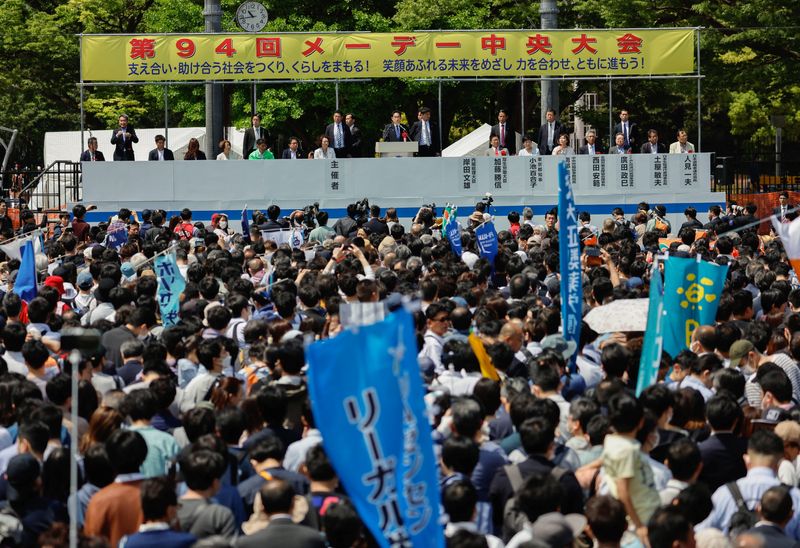TOKYO (Reuters) - Japan's largest trade union confederation 'Rengo' urged companies on Friday to raise wages further to outpace inflation and help workers deal with rising living costs.
The lobby group made the demand as its reviewed the results of its annual spring wage talks that concluded earlier this month, which saw major companies agree to average pay hikes of 3.58% this year, the highest in 30 years.
Prime Minister Fumio Kishida and the Bank of Japan (BOJ) are hoping wage hikes can be sustained to generate more consumer spending that will decisively lift the world's third-largest economy from decades of stagnation.
In Japan, average annual wages have been virtually flat since the bubble burst in the 1990s, OECD data showed, lagging many other advanced economies. The outlook has been even less positive for workers at smaller companies, which account for almost 70% of the workforce.
It is imperative for real wages to continue to rise, ensuring the economy will growth stably and consumers will shake off the country's long deflationary mindset, Rengo said in its document.
"There are some industries that did not see substantial wage hikes and real wages remain under pressure from price increases," said Rengo President Tomoko Yoshino. "It is vital to improve the wage trend and we must keep up such efforts in our 2024 offensive."
Rengo will kick off debates in October on pay rises for the coming year and set its expected wage demands by year end, before it negotiates with management early next year so that major firms can offer pay rises around the middle of March.

The survey of 5,272 unions affiliated with Rengo showed an average pay hike of 3.58% this year, or 10,560 yen ($73.04) per month, the biggest increase since 3.9% seen in 1993.
BOJ Governor Kazuo Ueda has repeatedly stressed the need to keep monetary policy super-loose until wages increase enough to keep price growth sustainably around its 2% target. But Japan has seen inflation exceed that target for more than a year, fuelling expectations the bank may soon start to raise its ultra-low interest rates.